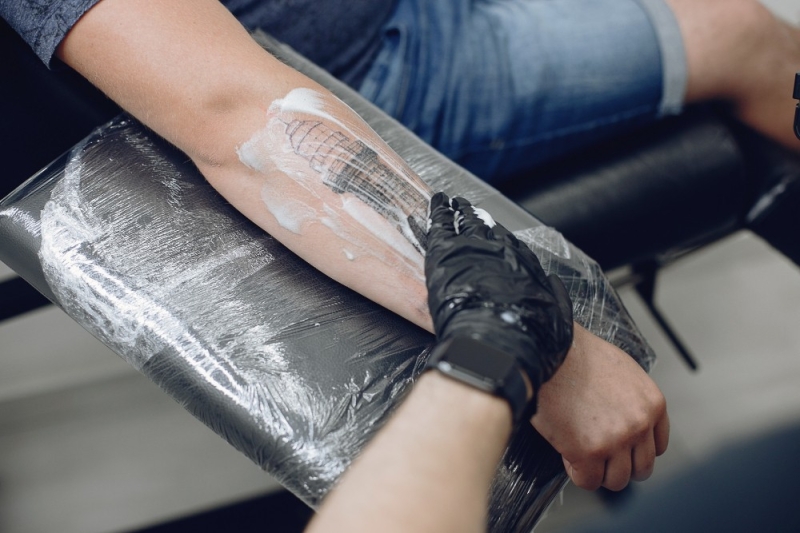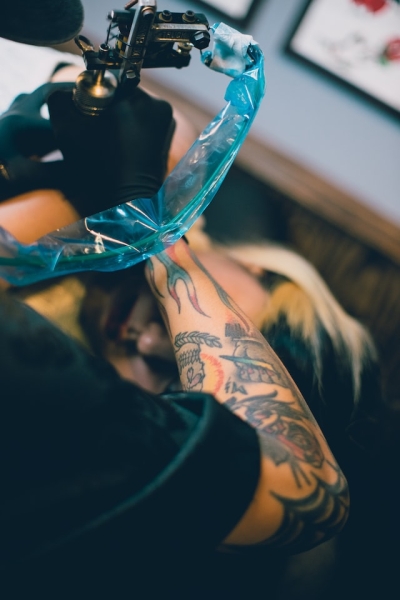Contents
Maybe an aspiring tattoo artist has always been an amazing doodler and eventually decided to take that hobby as a profession. Whether you depend on your personal drive, formal training, or an on-the-job opportunity to broaden your horizons, becoming a tattoo artist is an art that requires years of training and a commitment to master it.
But before thinking of tattooing as a career, ask yourself a few questions first:
- Are you artistic and creative?
- Do you have a personal desire for tattooing?
- Are you passionate and persistent?
- Are you flexible enough to move to grab the opportunities?
- Are you a people person who can build relationships with clients?
Quick Guide to Becoming a Tattoo Artist
Whether the spark of learning how to tattoo was your lifelong dream or a newer fascination when you got your first tattoo, there are a few essential steps that you must follow on the path to becoming a pro.

Start Drawing on Sketchbooks
Draw things that interest you; this will help increase your creativity. Continuous practice is necessary for developing your tattooing ability. Take your time to recognize your strength and what you can draw v/s what you can tattoo. Find out what the market feels like for the type of tattoo you want. Explore the tattoo world and study the work of famous tattoo artists like Mirko Sata, Chris Nunez, Gerhard Wiesbeck, Miya Bailey, and others.
Pro tip: Practice creating art for other people since you’ll be tattooing the art that meets the specifications of others.
Learn the Basic Elements of Art and Design
Learning basic artistic rules can give you a good knowledge of various design elements (such as shapes, lines, colors, texture, balance, alignment, contrast, and a lot more) and their impact on each other. So, knowledge of design components builds a strong foundation for creating intricate designs.
Invest in Artwork Education
Some tattoo artists receive formal training by attending tattoo classes, participating in relevant tattoo courses/workshops, or getting a degree from a university. Through formal art training, you can gain in-depth knowledge about design concepts and develop and polish your drawing abilities.

Build a Professional Portfolio
Creating a portfolio is crucial when starting your career as a tattoo artist because it allows prospective mentors and employers to quickly assess your work and decide if you can be their apprentice. Include your best drawings and eye-catching tattoo designs.
Secure an Apprenticeship
You can join physical classes from tattoo schools available or enroll for an online tattoo apprenticeship. Securing tattoo training is the best way to build your reputation in the industry.
Apprenticeships provide valuable insight into designing tattoos, operating, and sterilizing tattoo equipment, and other hygienic practices. You can also better understand the business aspect of owning and running a tattoo shop.
When pursuing tattoo training, keep a few things in mind:
- Having a mentor who will invest their time and knowledge in you will cost you money.
- Choose a mentor with at least a decade of tattooing experience and whose work aligns with your style.
- You may need to wait to tattoo people for many months or even a year during tattooist training.

Get Certified & Obtain License
You may be required to complete specific training courses and earn certain certifications to meet your state’s tattoo licensing requirements.
Some of the certifications you may require are:
- Training for skin disease and disease prevention
- Blood-borne pathogen certification
- Sanitary certification
- Tattoo practice licensure
To obtain the license, you must pass the exam and pay a fee.
Buy Personal Tattoo Equipment
Most tattoo shops require their tattooists to purchase their own gear, including tattoo guns, skin pens, needles, ink sets and tubes, hygienic supplies, and other necessary items.

Start Working as a Tattoo Artist
Now, it is the time to put yourself out there as a tattoo artist, either
- Apply at a tattoo shop: as a ‘guest artist or ‘rent the open chair’ in the room and entertain your own clients or
- Open up your own studio.
Tattooing can be an amazing artistic profession that brings joy to other people’s lives while simultaneously letting you make a good living. However, hard work and continuous practice are a must.
More Content
